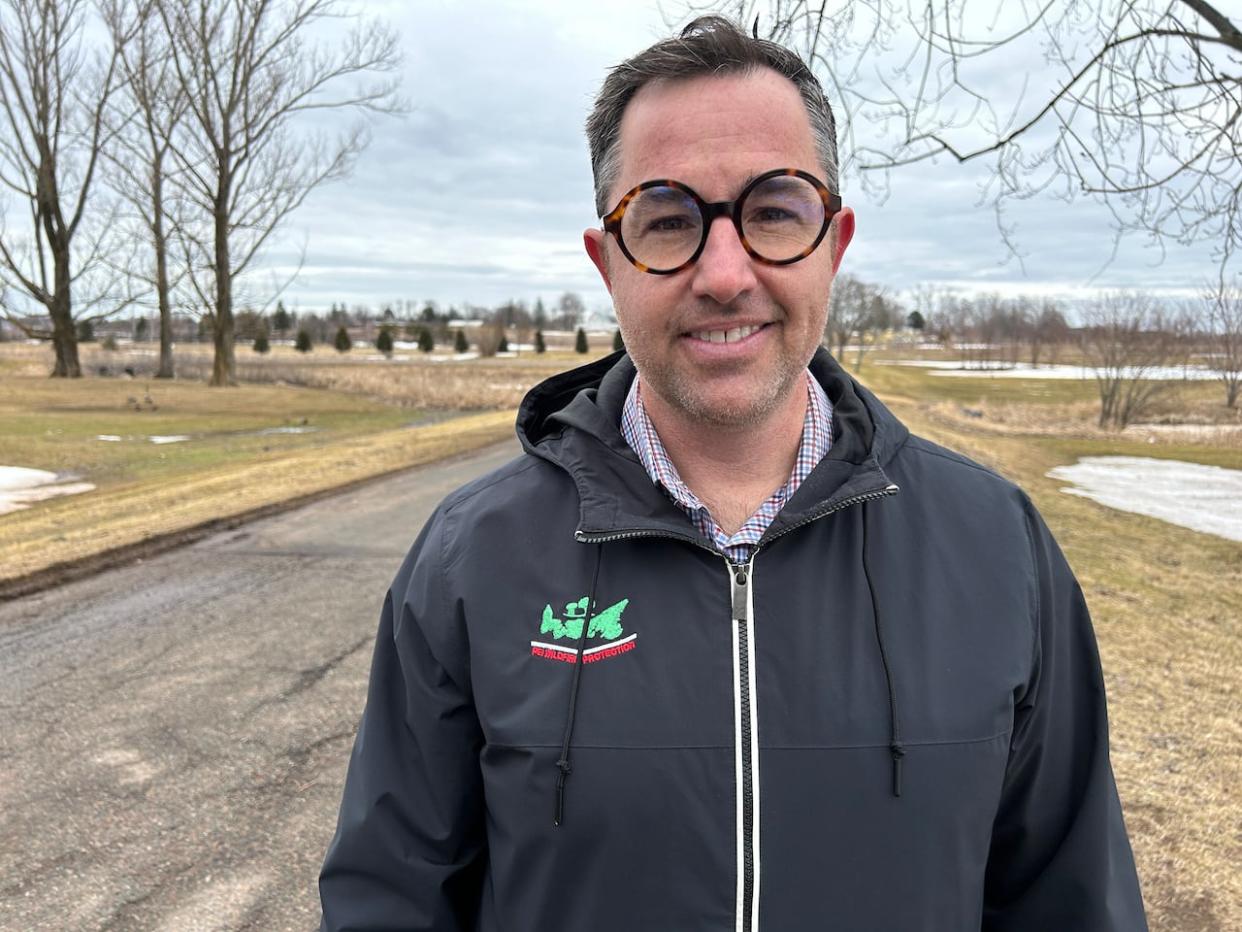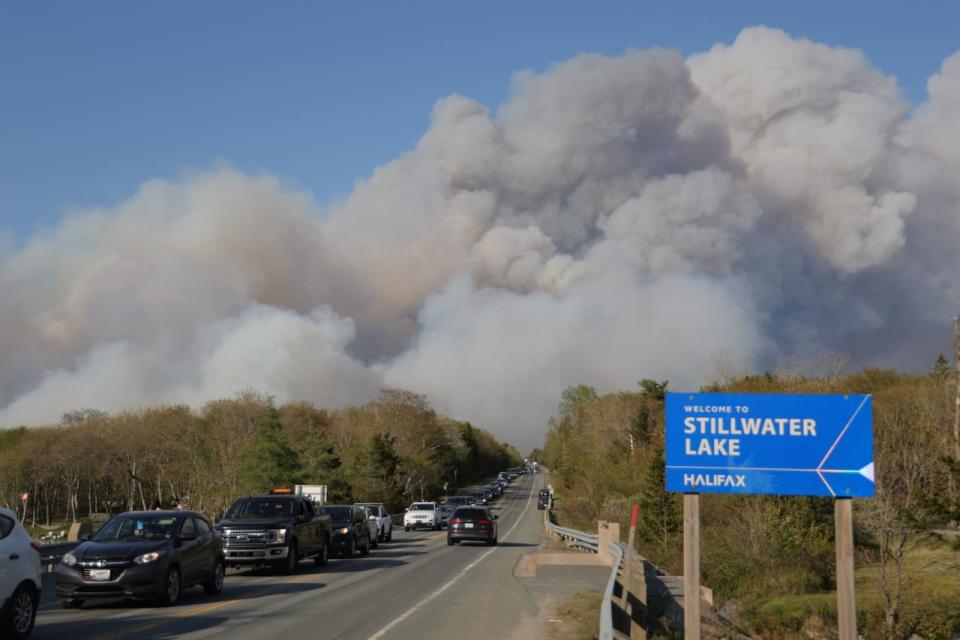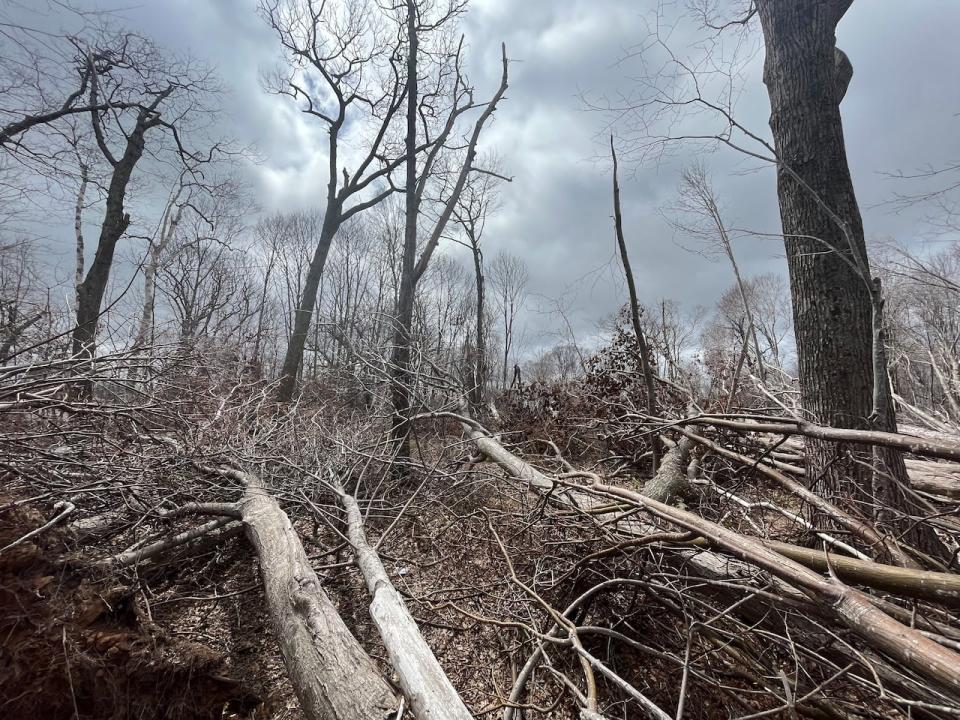Any burning questions? It's forest fire season on P.E.I.

P.E.I.'s forests, fish and wildlife division is reminding Islanders to be careful with any burning now that the province has entered forest fire season.
The province considers March 15 to Nov. 15 to be the period that presents the highest risk of fires spreading in Island forests.
"It's our open burning season so it's the time of year where there are more regulations in place," said Mike Montigny, manager of field services with the P.E.I. Department of Environment.
Last year was a record year for forest fires in Canada, according to wildfire experts.
Some of those fires were close to home. A fire that started in Upper Tantallon, N.S., on May 28 grew to nearly 800 hectares and affected the neighbourhoods of Hammonds Plains and Pockwock. Thousands of people had to evacuate from their communities, and over 200 homes and buildings were lost.
However, Montigny believes Prince Edward Island is set up to prevent any major fires from spreading.
"The good thing is we have really good working relationships with volunteer fire departments all across this Island. They are our first line of defence when it comes to working in forest fires," he said.
"We can get onsite very quickly … and our landscape, fortunately, supports that the fires are not going to get very large very quick."

A fire that started in Upper Tantallon, N.S., on May 28, 2023, grew nearly 800 hectares. (Jeorge Sadi/CBC)
If a fire does occur, there are some steps people can take to cut down on the risk of their home being burned, Montigny said.
"Landscaping, picking the right type of trees in and around your house, making sure that your firewood isn't stacked against [the house], making sure your gutters are clean, maybe you are going to … opt out of a flammable type mulch. Those are the kinds of things we would recommend."
The province is currently offering a FireSmart program to help folks make their homes less susceptible, Montigny said.
During 2023's forest fire season there was some confusion about what permits were needed for certain types of burning and when people could burn brush on their property, Montigny said.
"[People doing] domestic burning … small backyard clean up, they [are not required] to come into our offices. They can check everyday at 2 p.m. on the forest, fish and wildlife website on the burning."

The province is keeping an eye on trees that fell when post-tropical storm Fiona hit the province in 2022 because they could be a fuel source for fires. (Nicola MacLeod/CBC)
The province's fire restrictions website is colour coded and broken down into counties. Yellow means burning can take place after 8 p.m. till 8 a.m. the next day. If it's green, burning can take place between 2 p.m. and 8 a.m. Red means there's a burn restriction in place.
There is some leniency with campfires, however, when it comes to those restrictions.
"We recognize Prince Edward Island is a recreational province and we know that campfires fall a little bit outside the scope of domestic outdoor burning," Montigny said.
"We ask people that are participating in recreational campfires to be aware and to watch those restrictions and if they feel they can't keep that fire under control, maybe take a different approach."
When it comes to larger burns, people will have to get a permit from the forests, fish and wildlife division.
"That's for large-scale industrial cleaning, blueberry pruning, or if any broadcast burning like any grass you want to burn you have to come into the office."
Montigny is also keeping an eye on trees that fell when post-tropical storm Fiona hit the province in 2022 because they could be a fuel source for fires.
"We've been trying to prioritize areas in and around people's homes and in and around communities. There was a lot came down and it's a big job. We never had the expectation we are going to clean every tree up," Montigny said, adding the province will continue to work with the forestry sector to clean things up.
Wildfires that have occurred on P.E.I. in the past have been caused by people, Montigny said.
People should call 911 right away in the case of any bush burning or campfires that get out of control, he said.


